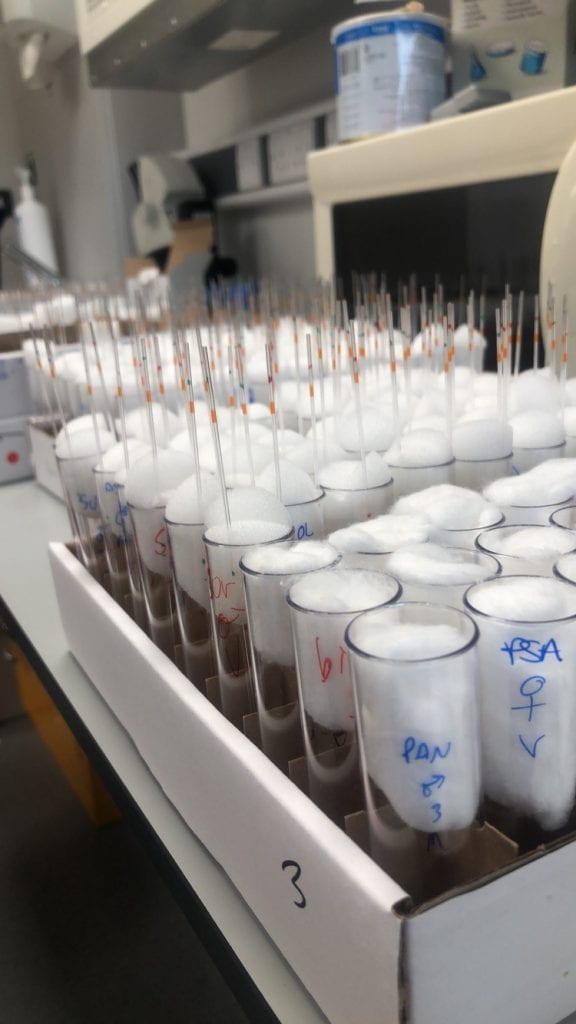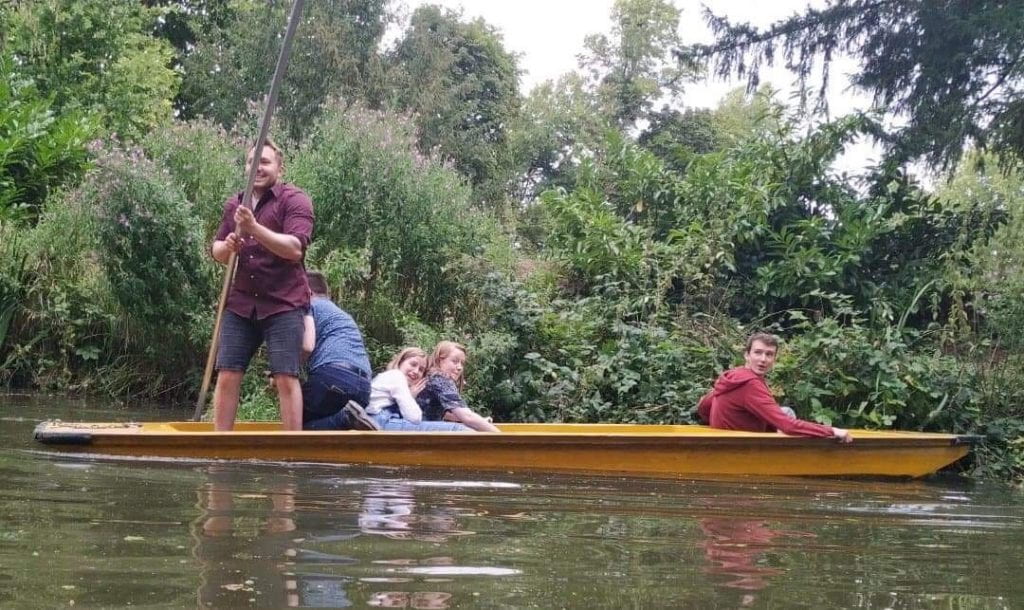Finding summer internships and career experience to build up a CV is a common pressure on university students, and for those who use summer work to help financially support themselves, these often voluntary or unpaid opportunities can become especially limited. I found myself in this challenging position in my third year when I was deciding on a career path without any experience. I was considering research or science communication but felt overwhelmed with the possibility that it was too late since I hadn’t done a summer placement.
After months of searching for internships, I had almost given up hope until I received an email from the University of Bristol Careers Service about the University of Oxford’s pilot UNIQ+ Summer School. Students who may find pursuing a postgraduate degree a challenge, for example, for financial or socio-economic reasons, could partake in a six-week postgraduate-style research project, receiving free accommodation in an Oxford college, and a generous stipend to cover any missed summer income. It was the perfect solution to my dilemma and being part of a cohort appealed much more than being alone!
The Application Process
This year, UNIQ+ was open to medical, biological, mathematical and physical sciences students but will hopefully expand to other subjects in future years. While applying, you specify your research interests to help match you to the right supervisor and project; mine were behavioural ecology and sociogenomics but I included a few others if they weren’t available. I sent my CV and an official academic transcript, and wrote a personal statement which elaborated on my circumstances, research interests and experience, and what a place on UNIQ+ would mean to me. A challenging part of the application was ensuring two referees sent in their reference letters by the deadline; I only had ten days in the latter half of the Easter holidays to do this, hence reaching the relevant academics was difficult! Thankfully, my referees were wonderful and wrote my letters just in time. I strongly recommend starting the process much earlier than I did and prioritise contacting your references as it is your responsibility that they are submitted!
I was offered a place having just finished my first of six exams in May; news which couldn’t have come at a better time as I had declined summer work holding out hope! I didn’t know the details of my project until early June but fortunately, my project was very well suited to my interests, studying the nutritional choices of five species of Drosophila under the supervision of Dr Jen Perry, an evolutionary ecologist in the Department of Zoology. I had never worked with fruit flies before, so this was a good opportunity to learn new lab techniques and challenge myself.
Lab Experience
I was shown around the Fly Lab on my first afternoon in Oxford, realising how different research labs are to the teaching labs that I was used to! The small size made it feel very immersive, and it meant I met everyone and became familiar with everything so quickly. I attended lab meetings where I set my own weekly goals and spoke about my project’s progress, which made me feel so welcome and often forgetting that I was a visiting student at all. I was given a lot of independence which suited me despite the steep learning curve it brought – one evening I left the lab at 10:30 pm because I severely underestimated how long transferring individual flies to vials would take!
My experiment expanded upon recent studies which suggest that D. melanogaster females consume more protein than males and that this contributes to egg production. This was supported by studies showing that increased protein consumption can decrease longevity, implying that the consumption must increase lifetime fitness for this strategy to persist. To the best of our knowledge, this hadn’t been tested in other species of Drosophila, which provided the premise for my project. I used D. melanogaster, D. birchii, D. pseudoananassae, D. pandora, and D. sulfurigaster to study the difference in protein and carbohydrate consumption in mated and unmated (virgin) males and females. I reared flies of each species and allocated them treatment groups once they were sexually mature (around five days after eclosion). Then, I performed large-scale mating experiments with roughly 600 females (see picture of the mating rack below) and separated them into their experimental agar vials for the nutrition experiment. Nutritional choice and consumption were measured using the difference in fill-level of two small capillary tubes (called ringcaps) over 24 hours; one filled with protein solution and the other with a carbohydrate solution. I repeated this process for three days, eventually converting the fill-level difference to volume consumed for statistical analysis.


After my initial analysis, my most notable result was a significant difference in protein consumption between mated females of different species. While protein consumption significantly increased following mating in all species, there was significant variation between them in the proportion of this increase. Considering that there are over 1500 species of Drosophila, results from lab generations of D. melanogaster therefore might be less applicable to other species than originally thought! To further investigate the relationship between nutrition and mating status, sex and species I completed further analyses which I presented to the cohort on my final day.
I truly enjoyed my time as part of the Fly Lab; I developed a repertoire of animal husbandry skills, from anaesthetising and sexing my project species (they’re surprisingly different!), to making their food and observing their mating behaviour. My biggest mistake was not keeping an organised lab book, particularly when it came to experimental design and numbers, something I know for my master’s project! After these six weeks, I feel more prepared not only for my fourth year but potential postgraduate studies. Although this time was a twinkle in the eye of a PhD, I am seriously considering it for my future and I look forward to exploring my options.
Social Experience
Alongside working hard in the labs, there was also a social programme to integrate the 39 of us with different projects (this included 6 students on a similar programme for the social sciences organised by Nuffield College). The core events were weekly semi-formal dinners hosted by one of the Oxford colleges. They offered a chance to catch up with other participants, meet the UNIQ+ academics and admin team, and speak to current PhD students (known as DPhil students at Oxford). If you are considering postgraduate study particularly at Oxford, these dinners were instrumental in creating a true college experience and meant you could ask college-specific questions at each. Set around these dinners were talks from academics and current DPhil students about their research areas, college tours, drinks receptions and even punting! Informal events were also organised by us, such as a curry night and attending a Shakespeare play at Oxford Castle.
For me, one of the most influential days was the Graduate Study Information Session. We heard informative talks from admissions and finance staff about the postgraduate interview process, applying for scholarship funding, and other extremely valuable tips to help us for the application process. These sessions, alongside our lab experience, really made postgraduate study feel so much more accessible than before UNIQ+ and gave me the confidence boost I needed to decide whether postgraduate study was for me.
Of course, one of the best parts of UNIQ+ was the friends I made. Leaving your established friendship group to go and live in a new city was so challenging but making friends from other universities in similar situations to yourself was definitely a highlight. I’m so grateful to have met such driven and passionate friends who genuinely inspired me so much in such a short time.

Final Thoughts
Although it wasn’t without its hiccups, the pilot year of UNIQ+ was incredible and I am confident that our feedback will help make next year’s programme even better. The intended increase in intake hopefully means more participants in each college to create a more representative view of college life, where I felt there could be the most improvement. This, however, didn’t dictate my overall experience, and I left the programme with so much more clarity about my future direction, and for that I couldn’t be more thankful.
If you are passionate about research and meet the requirements for the UNIQ+ application (which can be checked here), then I strongly urge you to apply, even if you aren’t considering Oxford! It was a unique insight into postgraduate life and a really valuable way to spend the summer; it pushes you out of your comfort zone and into a world-renowned university that is often seen as inaccessible. Opportunities like these are still scarce but I am hopeful that this is changing. I believe that the University of Oxford’s UNIQ+ Access Summer School is pioneering a new era of research internship opportunities across universities so that all students can fulfil their passions.
Finally, I would like to thank all members of the UNIQ+ admin team and organisers for such a memorable experience, as well as the University of Oxford’s Department of Zoology and in particular everyone in the Fly Lab for being so welcoming. Of course, a special thank you goes to Dr Perry – I couldn’t have asked for a lovelier supervisor who helped make my summer in Oxford so brilliant.
Written by Ellie Jarvis Zoology (MSci)
UNIQ+ Summer School at the University of Oxford (1st July – 9th August 2019)

